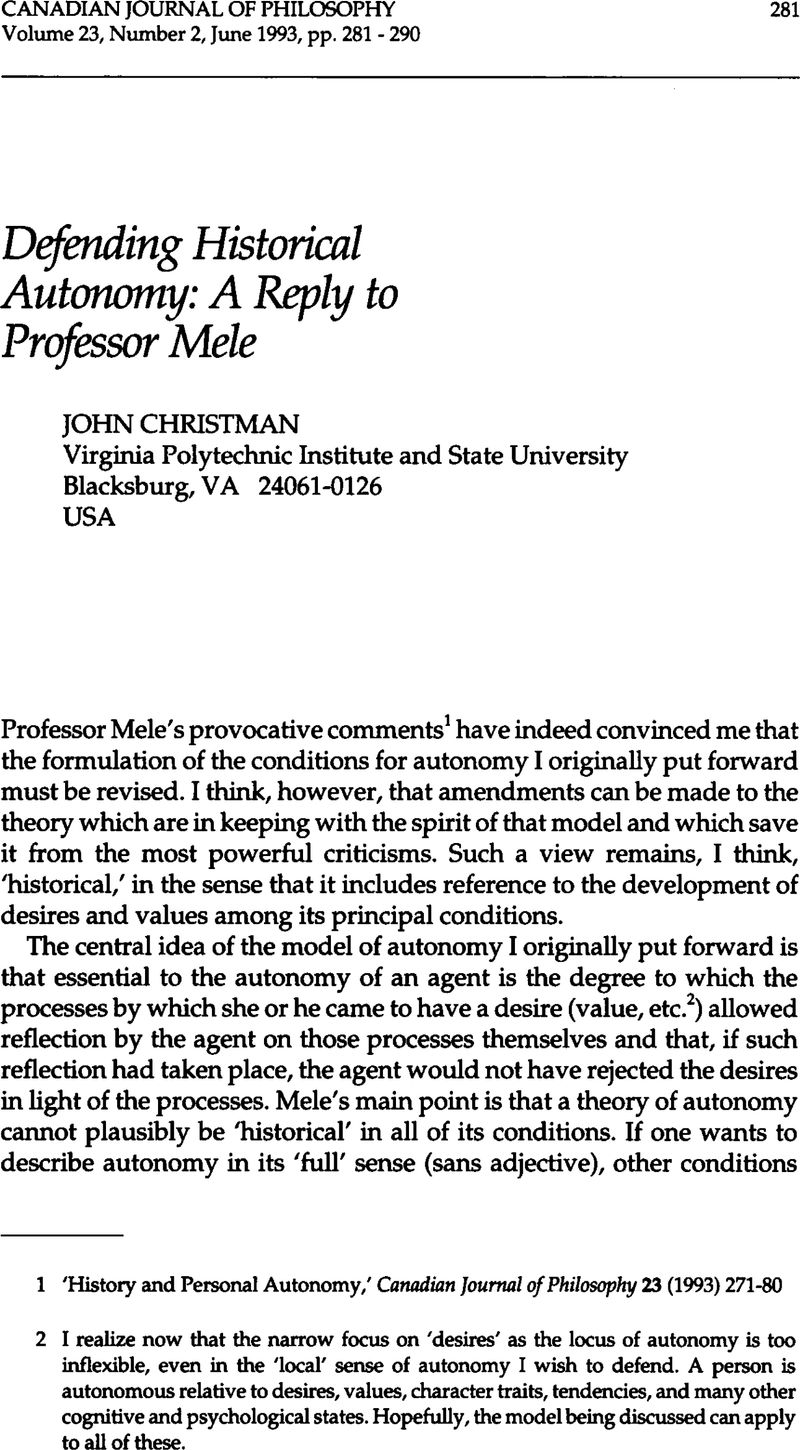Published online by Cambridge University Press: 01 January 2020

1 ‘History and Personal Autonomy,’ Canadian Journal of Philosophy 23 (1993) 271-80
2 I realize now that the narrow focus on ‘desires’ as the locus of autonomy is too inflexible, even in the ‘local’ sense of autonomy I wish to defend. A person is autonomous relative to desires, values, character traits, tendencies, and many other cognitive and psychological states. Hopefully, the model being discussed can apply to all of these.
3 Moreover, even if a purely internal specification can be made of motivational defects, this seems closer to what usually comes under the rubric of positive freedom insofar as the latter describes an agent’s power to put her desires to good effect.
4 I have made other slight changes in phrasing for the purposes of clarity.
5 Of the problems that remain, I might mention two: the model still contains an important hypothetical test for autonomy (the agent would not have rejected her development had she reflected), and hypothetical conditions are notoriously problematic. The counterfactual situation could be affected by any number of irrelevant and accidental factors. Second, the judgment a person makes concerning a habit or desire she has may well diverge significantly from the attitude she has toward the nature of its development. I might love being able to play the piano but hate the techniques my crotchety old teacher subjected me to. An adequate defense of the view against such charges would take us well outside the scope of this reply, however.